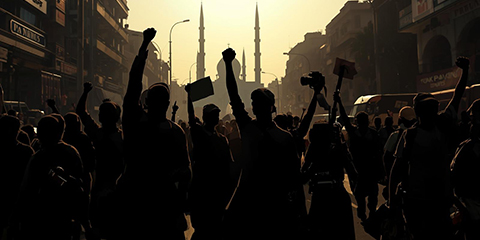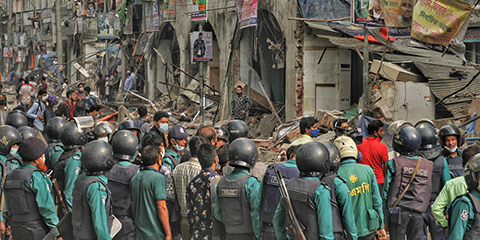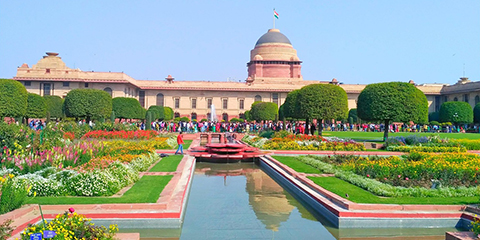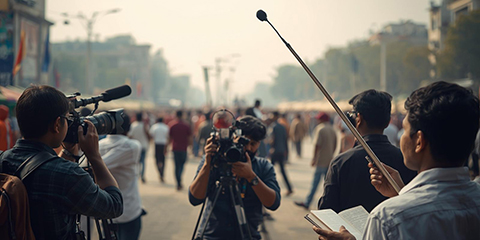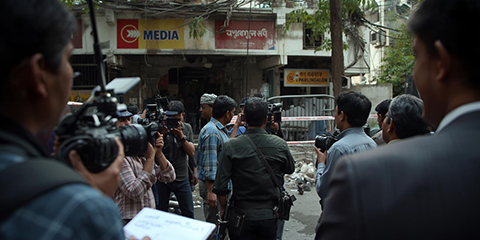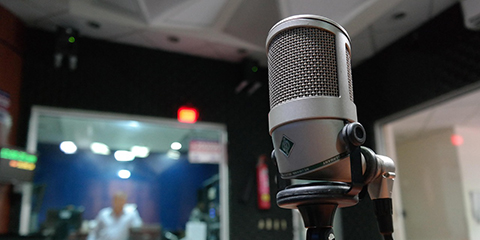Social media law threatens free expression in Nepal
JournalismPakistan.com | Published 10 months ago | IFJ Media Release
Join our WhatsApp channel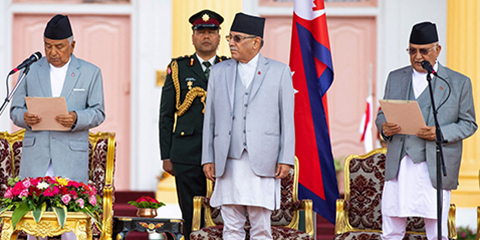
KATHMANDU—Nepal’s media community has widely criticized a new bill designed to regulate social media in Nepal over its potential to limit freedom of expression, the right to information, and press freedom. The International Federation of Journalists (IFJ), and its affiliates, the Federation of Nepali Journalists (FNJ) and the Nepal Press Union (NPU) urge the government to withdraw the Social Media Act bill immediately and legislate in greater consultation with unions, journalists, and civil society organisations.
On February 9, the 'Bill on the Operation, Use, and Regulation of Social Media', called the Social Media Act Bill, was introduced in Nepal’s National Assembly, designed to regulate social media platforms and users through increased registration, penalization, and content moderation.
The bill would require social media platforms to register with the government to operate in Nepal, enforce strict content moderation policies, and target harmful activities online, including extortion, cyberbullying, phishing, scams, and hacking, specifically defining and determining digital crimes.
Concerningly, the bill would also grant authorities the ability to remove “indecent” or “misleading” content, further criminalize remarks deemed defamatory, criminalize the sharing of ‘trolling’ images, and penalize those spreading images or audiovisuals that could harm someone’s reputation, among others. The bill would also criminalize interacting with social media with ‘malicious intent’ and prohibit the disclosure of ‘confidential information’. Many sections within the bill have been identified as problematic for being overly vague and criticized for their potential for abuse from authorities. The bill could impose fines of up to NPR 1,500,000, approx. USD 10,750, and up to five years imprisonment, with punishments able to accumulate for concurrent charges.
Once the National Assembly accepts the bill, lawmakers will be able to register amendments. The bill must be debated and approved by the lower House of Representatives and finally given Presidential authentication before ascending into law.
Nepal’s first modern attempt to regulate social media came through the proposed IT Bill in 2019, which was withdrawn following criticism over the bill’s potential to restrict freedom of expression. Social media platforms in Nepal are currently regulated in amended sections of the 2008 Electronic Transactions Act, responsible for the later overturned TikTok ban in 2023.
In another development, Nepal’s National Assembly passed the Media Council Bill 2080 on February 10, failing to heed calls from journalists and media representative bodies for greater consultation. The bill would replace the existing Press Council of Nepal with the new Media Council Nepal, with the new 11-member council would be led by a government-appointed chairperson, with the NPU, FNJ, and others registering their concerns that this would limit its independence.
The FNJ said: “The Federation expresses serious disagreement and objection to the government's move forward with the bill by including some provisions that undermine the freedom of the press and expression without even normal consultation and discussion with the leading civil society organizations, including the FNJ Nepal. Therefore, through in-depth dialogue with the Federation and the stakeholders, the Federation urges the Government of Nepal and the Federal Parliament to move forward with the bill only after correcting the provisions that inhibit the freedom of the press and expression in a manner that is consistent with global human rights, the values of freedom of the press and expression, our constitutional provisions and prevailing practices.”
The NPU said:“The Nepal Press Union has drawn serious attention to some of the provisions in the Social Media Bill 2081 proposed by the government and registered in the National Assembly for the operation, use, and regulation of social media. Although it is claimed that the government has introduced a bill to make social media platform operators and users responsible and accountable to promote social harmony, cultural tolerance and good governance, the press union expresses its objections to provisions in the bill that affect press freedom and freedom of expression.”
The IFJ said:“In its current form, the Social Media Bill threatens to severely undermine press freedom and digital expression. Digital spaces can be regulated without compromising the rights of Nepali journalists or opening media workers up to spurious cases. This bill must be withdrawn or subject to significant amendments limiting its potential to be weaponised against the media.”
Photo caption: Nepali Prime Minister Khadga Prasad Sharma Oli (R) takes the oath of office, administered by President Ram Chandra Poudel (L) in Kathmandu on July 15, 2024. Credit: Prabin Ranabhat / AFP




